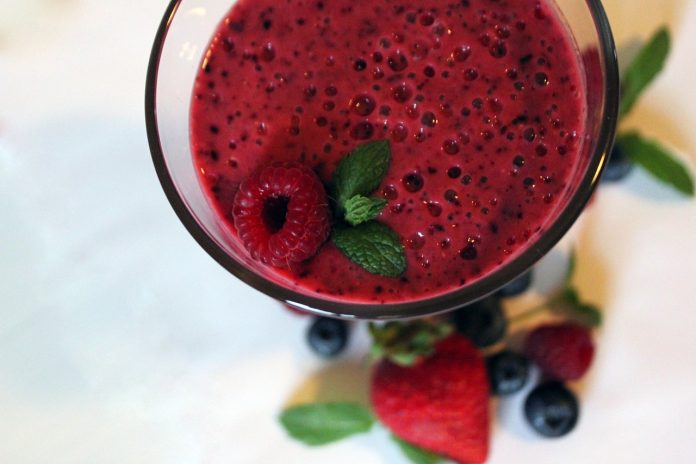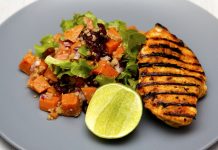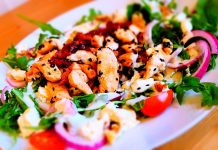
Most quick weight loss diets allow all the lean meat, poultry, fish, eggs, and cheese you want, but no bread or starches, fruits, starchy vegetables or milk. It is a high protein, high fat, very low carbohydrate diet that results in ketosis and dehydration. This diet would not be recommended for any person with a heart blockage. In fact, I would not recommend a quick weight loss diet for anyone.
Successful weight loss means losing weight and keeping it off. A weight reduction diet that is 1 to 2-pounds a week and incorporates changes in eating habits has been proven to be the most successful.
The arguments of people that favor quick weight loss diets (Scarsdale, Stillman, Atkins, Ski Team, Air Force, Drinking Man’s, Calories Don’t Count, MayoClinic, grapefruit diets, etc.) is that if you eat enough protein, you will spare your own body protein from being broken down and instead will break down your body’s stored fat. This is not how your body uses food protein or fat.
Your body prefers to run on your blood glucose for fuel. Every time you eat carbohydrates (starches, fruit, milk, and vegetables), which break down into glucose, you refuel your blood glucose and keep your liver/muscle glycogen stores full. When carbohydrates are not eaten, your body depletes liver glycogen by turning it into glucose. Then when liver glycogen stores are depleted, your body has to turn to another source of fuel, either stored protein in muscles and organs or body fat. However, your brain and nerve cells prefer to run on glucose.
In diets that contain fewer than 900 calories, all food eaten including protein and fat is broken down into glucose to provide fuel for the body. Protein and fat are very expensive fuels for your body. You can only convert 70% of the protein and 30% of the fat you eat to glucose. The nitrogen from the protein is excreted in your urine. This leaves no protein for repair or maintenance of muscles and organs. Also, in diets containing fewer than 130 grams of carbohydrates, ketosis occurs and your body starts breaking down muscle and lean tissue to provide glucose for brain and nerve fuel. Your body’s first need is for fuel.
Your body can and does take the stored body fat (as triglycerides) and incompletely breaks it down into ketones, which can be used as a fuel source for muscles and organs. To completely break down body fat, you need glucose and oxygen. If glucose is not available for fuel by your limiting food carbohydrates, your body learns to run on ketones. While your brain will run on ketones, it prefers glucose. Your brain gets sluggish on ketones so you may have a hard time focusing.
Your body starts breaking down muscle and organ tissue to provide the needed glucose. Protein contains glucose in its structure and it can be scavenged to fuel the blood. Quick weight loss diets claim they spare muscle protein, but they don’t even when calories are unlimited. A diet high in protein and low in carbohydrates does not spare muscle protein from being broken down unless you eat enough carbohydrate. The minimum food carbohydrate is 130 grams. As you continue on a high protein, low carbohydrate diet, the amount of ketones increases and ketosis occurs. Ketones are very irritating to your kidneys and they filter ketones out of the body in urine.
Your body draws water from your tissues to have water to float these ketones out of the body. This results in dehydration and the resulting quick weight loss you experience is actually from the water. Glycogen in the liver and muscles hold 3 times their weight in water. So when glycogen is depleted, so is water from the lean tissue. Most of these diets caution followers to drink 8 glasses of water a day to prevent serious dehydration. A simple test for dehydration is, take a pinch of skin on the back of your hand and pull it up. Let the fold of skin go and it should snap back. If it doesn’t, you may be dehydrated. Other tests for dehydration are to look at the color of your urine, it should be light yellow (except the first urine in the morning) and without odor. Also, the mucous membranes inside your mouth should be moist, not dry and cracked. If ever, there is any question about dehydration, please call your doctor.
Your mother is increasing the levels of cholesterol in her blood because these fats provide fuel when glucose is in limited supply. Also, your liver releases increased amounts of cholesterol during periods of stress and a quick weight loss diet is stressing her body.
Show your mother this article and encourage her to see a Dietitian for an appropriate weight loss plan. She should first consult her doctor regarding the appropriateness of a weight reduction diet considering her current health. One last thought, a person called doctor might have their Ph.D. (doctor of philosophy) and not an MD. Check a person’s credentials before trusting them with your nutritional health.



